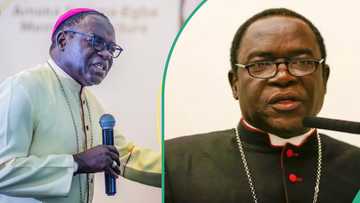Ex-Principals Break Silence After FG Removed Mathematics as Compulsory Subject for Admission
- The federal government’s decision to drop mathematics as a mandatory subject for arts and humanities admissions has sparked criticism from education stakeholders
- Alexander Obadimu, president of the Association of Retired Principals in Ogun state, warned against the policy
- The reform, aimed at expanding access to tertiary education, has ignited debate over its long-term impact and institutional compliance
The president of the Association of Retired Principals of Secondary Schools of Nigeria, Ogun state chapter, Alexander Obadimu, has criticised the federal government’s recent decision to remove mathematics as a compulsory requirement for admission into arts and humanities courses in tertiary institutions.
Speaking on Wednesday during the association’s 3rd annual congress held in Abeokuta, Obadimu expressed concern over the policy shift, describing it as “not well thought” and warning that it could encourage academic laziness among students.

Source: Twitter
“It is very unfortunate that such decisions could come up at this time around. Many students would run off from Mathematics; Mathematics has its good side and saying it’s no longer required is unfortunate,” he said.
Federal Ministry of Education defends reform
The Federal Ministry of Education had announced the policy change on Tuesday through its spokesperson, Folasade Boriowo. According to the ministry, senior secondary school students in the arts and humanities will no longer be required to present a credit in Mathematics in their Senior School Certificate Examination (SSCE) to gain admission into tertiary institutions.
The revised National Guidelines for Entry Requirements into Nigerian Tertiary Institutions now stipulate that Mathematics is mandatory only for Science, Technology, and Social Science courses at the university level.
Obadimu warns of academic decline and policy backlash
Obadimu, however, warned that the removal of Mathematics from the entry criteria for arts and humanities could have long-term negative consequences on academic standards and scientific development.
“Many of the students would not even try to offer it again and lo and behold, you would discover that academic decadence would start coming in. It has its own positive role in academics generally,” he said.
He also questioned the sustainability of the reform, suggesting that some higher institutions might not comply with the directive. “I want to believe that it won’t stay for long because some higher institutions might not take it as decided by the Federal Ministry of Education,” he affirmed.
Speaking with Legit.ng, Imaan Muhammad, an educationist based in Nigeria, spoke on FG’s recent policy on Mathematics:
“Honestly, I agree with Mr Obadimu. Maths builds discipline and sharpens thinking even for non-science students. Removing it might make things easier short-term, but we risk lowering the bar in the long run.”
Minister of Education outlines goals of new admission policy
Minister of Education, Dr. Tunji Alausa, defended the reform as a strategic move to expand access to tertiary education. He said the ministry had approved a comprehensive overhaul of admission entry requirements, aiming to increase the average annual intake from 700,000 to one million students.
“This imbalance is not due to lack of ability but outdated and overly stringent entry requirements that must give way to fairness and opportunity,” Alausa stated.
He added that the reform aligns with the Renewed Hope Agenda and is expected to create opportunities for an additional 250,000 to 300,000 students each year.

Source: Twitter
Mathematics no longer compulsory for admission
Legit.ng earlier reported that the Federal Ministry of Education announced on Tuesday that senior secondary school students specialising in arts and humanities will no longer be required to present a credit pass in mathematics in their Senior School Certificate Examination (SSCE) as a condition for admission into universities and polytechnics.
Proofreading by James Ojo, copy editor at Legit.ng.
Source: Legit.ng





